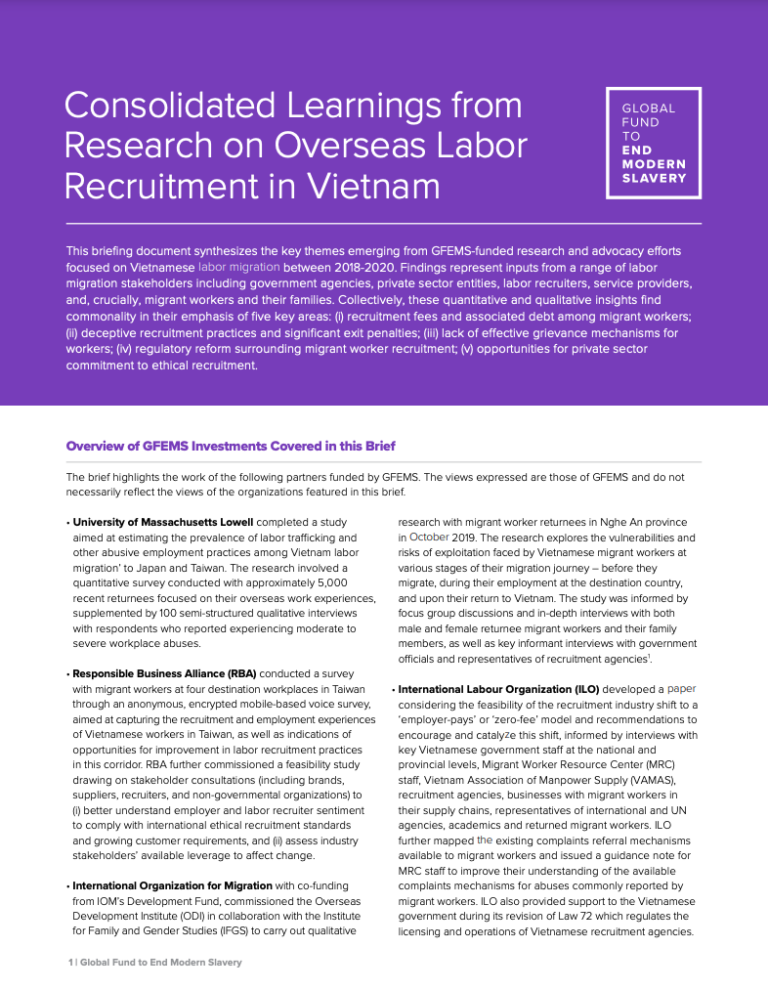This briefing document synthesizes the key themes emerging from GFEMS-funded research and advocacy efforts focused on Vietnamese labor migration between 2018-2020. Findings represent inputs from a range of labor migration stakeholders including government agencies, private sector entities, labor recruiters, service providers, and, crucially, migrant workers and their families. Collectively, these quantitative and qualitative insights find commonality in their emphasis of five key areas: (i) recruitment fees and associated debt among migrant workers; (ii) deceptive recruitment practices and significant exit penalties; (iii) lack of effective grievance mechanisms for workers; (iv) regulatory reform surrounding migrant worker recruitment; (v) opportunities for private sector commitment to ethical recruitment.

